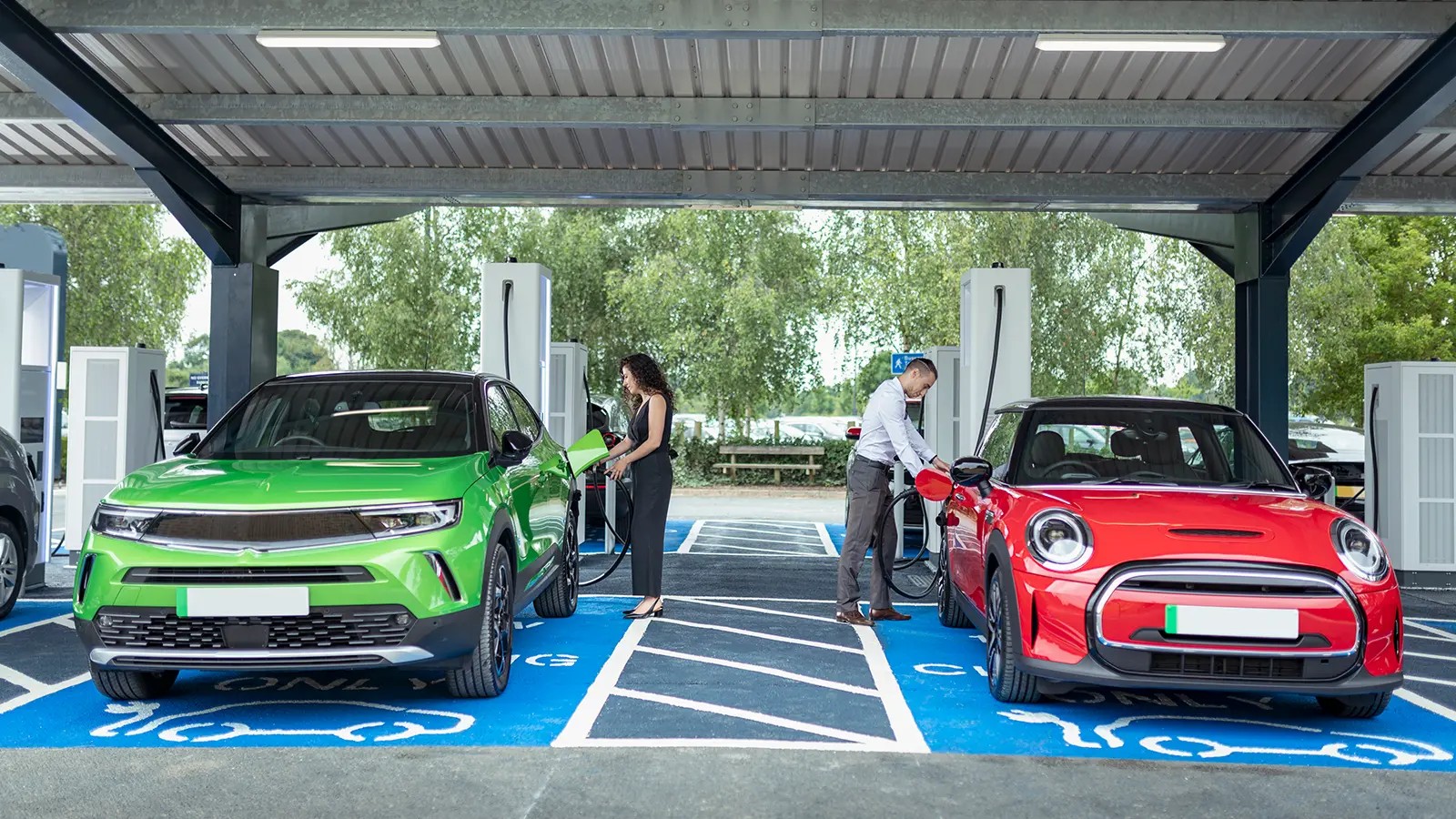Are Electric Cars More Expensive than their gasoline counterparts? This is a question on the minds of many prospective car buyers, and CARS.EDU.VN is here to provide clarity. While the initial purchase price might seem higher, a comprehensive look at factors like running costs, incentives, and long-term ownership reveals a more nuanced picture. Let’s dive deep into the economics of electric vehicles, exploring battery technology advancements and total cost of ownership to determine if going electric is truly a cost-effective choice.
1. Understanding the Initial Price Tag of Electric Cars
Electric vehicles (EVs) have undoubtedly surged in popularity, fueled by environmental awareness and technological advancements. However, the upfront cost often raises eyebrows. Is that higher price tag truly justified? Let’s break down the factors contributing to the initial investment.
1.1. Battery Technology and its Impact on EV Cost
The battery pack is the heart of an electric vehicle, and it significantly impacts the overall cost.
- Raw Materials: Lithium, cobalt, nickel, and manganese are key components of EV batteries. The extraction and processing of these materials can be expensive and are subject to price fluctuations.
- Manufacturing Process: Battery production involves complex chemical processes and stringent quality control measures, adding to the manufacturing expenses.
- Energy Density: Higher energy density batteries (allowing for longer driving ranges) often require more advanced and costly materials.
- Research and Development: Continuous innovation in battery technology necessitates substantial investments in research and development.
1.2. Manufacturing Costs and Economies of Scale
Besides battery costs, manufacturing processes play a vital role in determining the price of electric cars.
- Specialized Components: EVs require unique components like electric motors, power inverters, and specialized charging systems, which can be more expensive to produce than traditional internal combustion engine (ICE) parts.
- Production Volume: As EV production volumes increase, manufacturers benefit from economies of scale, leading to lower per-unit costs.
- Assembly Line Adaptation: Existing automotive factories need to be retooled to accommodate EV production, incurring additional capital expenditures.
- Labor Costs: Skilled labor is essential for EV assembly and battery manufacturing, which can impact the final price.
1.3. Feature Parity and Premium Models
The features included in electric cars also contribute to their cost. Currently, many EVs are positioned as premium models, packed with advanced technology and luxurious amenities.
- Advanced Driver-Assistance Systems (ADAS): Many EVs come standard with ADAS features like adaptive cruise control, lane keeping assist, and automatic emergency braking, adding to the price.
- Infotainment Systems: Large touchscreens, premium audio systems, and connected car services are common in EVs, increasing their appeal but also their cost.
- Performance and Range: High-performance EVs with extended ranges require more powerful batteries and motors, further driving up the price.
- Brand Perception: Some automakers are deliberately positioning their EVs as high-end vehicles to attract a more affluent customer base.
2. Unveiling the Total Cost of Ownership: A Comprehensive Analysis
While the initial purchase price of an electric car may seem daunting, it’s crucial to consider the long-term financial implications. Understanding the total cost of ownership (TCO) provides a clearer picture of the true economic value of EVs compared to gasoline cars.
2.1. Fueling Costs: Electricity vs. Gasoline
One of the most significant advantages of electric cars is the potential for substantial savings on fueling costs. Let’s compare the expenses associated with electricity and gasoline.
| Factor | Electric Car | Gasoline Car |
|---|---|---|
| Fuel Source | Electricity | Gasoline |
| Cost per Mile | Lower, varies by electricity rate | Higher, fluctuates with gas prices |
| Efficiency | More efficient energy conversion | Less efficient energy conversion |
| Price Stability | Electricity prices are generally stable | Gasoline prices can be volatile |
| Home Charging | Convenient home charging options | Requires trips to gas stations |
| Public Charging | Growing network of public chargers | Widespread gas station availability |


- Electricity Rates: The cost of electricity varies by region and time of day. Charging during off-peak hours can further reduce expenses.
- Gasoline Prices: Gasoline prices are subject to geopolitical events, supply and demand, and refining capacity, making them unpredictable.
- Energy Efficiency: Electric cars convert a higher percentage of energy into motion compared to gasoline cars, resulting in lower per-mile costs.
- Home Charging Convenience: Charging at home eliminates the need for frequent trips to gas stations, saving time and effort.
2.2. Maintenance and Repair Costs: What to Expect
Electric cars generally require less maintenance than gasoline cars due to their simpler mechanical design.
| Maintenance Item | Electric Car | Gasoline Car |
|---|---|---|
| Oil Changes | Not required | Regular oil changes are essential |
| Spark Plugs | Not required | Spark plugs need periodic replacement |
| Exhaust System | No exhaust system | Exhaust systems require maintenance and repairs |
| Transmission | Simpler, single-speed transmission | Complex multi-speed transmission |
| Brakes | Regenerative braking reduces brake wear | Traditional braking system |
| Fluid Changes | Fewer fluids to change | More frequent fluid changes required |
- Fewer Moving Parts: Electric cars have fewer moving parts than gasoline cars, reducing the likelihood of breakdowns.
- Regenerative Braking: Regenerative braking captures energy during deceleration, reducing wear and tear on brake pads.
- Reduced Fluid Changes: Electric cars require fewer fluid changes, such as oil changes, transmission fluid changes, and coolant flushes.
- Software Updates: Many maintenance tasks can be performed remotely via software updates, saving time and money.
2.3. Government Incentives and Tax Credits: Maximizing Savings
Government incentives and tax credits can significantly lower the upfront cost of electric cars, making them more accessible to a wider range of consumers.
- Federal Tax Credit: The U.S. federal government offers a tax credit of up to $7,500 for eligible electric vehicles. The actual amount depends on battery capacity and other factors.
- State and Local Incentives: Many states and local governments offer additional incentives, such as rebates, tax credits, and grants, to encourage EV adoption.
- HOV Lane Access: Some states allow electric car drivers to use high-occupancy vehicle (HOV) lanes, saving time during commutes.
- Charging Infrastructure Incentives: Governments and utilities offer incentives for installing home charging stations, further reducing the cost of ownership.
CARS.EDU.VN stays up-to-date on all federal, state, and local incentives to help you maximize your savings when switching to an EV.
2.4. Depreciation: How EVs Hold Their Value
Depreciation is a significant factor in the total cost of ownership. Understanding how electric cars hold their value compared to gasoline cars is crucial.
- Battery Health: Battery degradation can impact the resale value of electric cars. However, modern EV batteries are designed to last for many years with minimal degradation.
- Technology Advancements: Rapid advancements in EV technology can accelerate depreciation as newer models with better range and performance become available.
- Market Demand: The growing demand for electric cars is helping to support their resale value.
- Government Policies: Government incentives and regulations can influence the resale value of EVs.
3. The EV Ownership Experience: Beyond the Numbers
The decision to purchase an electric car extends beyond mere financial considerations. The EV ownership experience offers unique advantages and challenges that can significantly impact your overall satisfaction.
3.1. Performance and Driving Dynamics: A Thrilling Ride
Electric cars deliver instant torque and smooth acceleration, providing a thrilling driving experience.
- Instant Torque: Electric motors provide maximum torque from a standstill, resulting in quick acceleration.
- Smooth and Quiet Ride: EVs offer a smooth and quiet ride due to the absence of engine noise and vibrations.
- Regenerative Braking: Regenerative braking provides a unique driving experience, allowing drivers to decelerate using the electric motor.
- Low Center of Gravity: The placement of batteries in the vehicle’s floor lowers the center of gravity, improving handling and stability.
3.2. Environmental Impact: Driving Towards a Greener Future
Electric cars produce zero tailpipe emissions, contributing to cleaner air and a healthier environment.
- Reduced Greenhouse Gas Emissions: EVs can significantly reduce greenhouse gas emissions, especially when powered by renewable energy sources.
- Improved Air Quality: EVs help to improve air quality in urban areas by eliminating tailpipe emissions.
- Sustainable Transportation: EVs promote sustainable transportation by reducing reliance on fossil fuels.
- Lower Carbon Footprint: The overall carbon footprint of EVs is lower than that of gasoline cars, even when considering the manufacturing process.
3.3. Charging Infrastructure and Range Anxiety: Addressing the Concerns
Charging infrastructure and range anxiety are common concerns for potential EV buyers. However, advancements in charging technology and battery range are addressing these issues.
- Home Charging: Home charging is the most convenient way to charge an EV. A Level 2 charger can fully charge an EV overnight.
- Public Charging Networks: Public charging networks are expanding rapidly, providing charging options at workplaces, shopping centers, and highway rest stops.
- Range Improvements: EV range is steadily increasing, with many models now offering over 300 miles on a single charge.
- Route Planning Apps: Route planning apps can help drivers find charging stations along their route and estimate charging times.
3.4. Technology and Innovation: Embracing the Future of Mobility
Electric cars are at the forefront of automotive technology, offering advanced features and connectivity.
- Over-the-Air Updates: EVs can receive over-the-air software updates, adding new features and improving performance.
- Connected Car Services: EVs offer a range of connected car services, such as remote vehicle monitoring, charging station location, and navigation.
- Autonomous Driving Features: Many EVs come equipped with advanced driver-assistance systems that pave the way for autonomous driving.
- Battery Management Systems: Sophisticated battery management systems optimize battery performance and longevity.
4. Breaking Down the Costs: Popular Electric Car Models
To further illustrate the cost of electric cars, let’s examine some popular models and their associated expenses. Please note that these are average prices and can vary based on location, options, and incentives.
4.1. Tesla Model 3: Setting the Standard
The Tesla Model 3 is one of the best-selling electric cars in the world, known for its performance, range, and technology.
| Cost Component | Estimated Price | Notes |
|---|---|---|
| Base Model Price | $42,000 | Price may vary based on configuration and options |
| Federal Tax Credit | Up to $7,500 | Eligibility and amount depend on federal guidelines |
| State Incentives | Varies | Check your state’s EV incentive programs |
| Estimated Fuel Savings | $800 – $1,200/year | Based on average electricity and gasoline prices |
| Maintenance Savings | $300 – $500/year | Due to fewer moving parts and regenerative braking |
| Insurance Costs | Similar to comparable gasoline cars | Rates depend on driving record and location |
| Resale Value | High | Tesla vehicles tend to hold their value well |
4.2. Chevrolet Bolt: Affordable Electric Mobility
The Chevrolet Bolt is a more affordable electric car that offers a compelling combination of range and practicality.
| Cost Component | Estimated Price | Notes |
|---|---|---|
| Base Model Price | $26,500 | Price may vary based on configuration and options |
| Federal Tax Credit | Up to $7,500 | Eligibility and amount depend on federal guidelines |
| State Incentives | Varies | Check your state’s EV incentive programs |
| Estimated Fuel Savings | $700 – $1,100/year | Based on average electricity and gasoline prices |
| Maintenance Savings | $250 – $450/year | Due to fewer moving parts and regenerative braking |
| Insurance Costs | Similar to comparable gasoline cars | Rates depend on driving record and location |
| Resale Value | Moderate | Depreciation can be higher compared to Tesla |
4.3. Ford Mustang Mach-E: Electric Muscle Car
The Ford Mustang Mach-E combines the iconic Mustang styling with electric power, offering a unique and exciting EV experience.
| Cost Component | Estimated Price | Notes |
|---|---|---|
| Base Model Price | $43,000 | Price may vary based on configuration and options |
| Federal Tax Credit | Up to $7,500 | Eligibility and amount depend on federal guidelines |
| State Incentives | Varies | Check your state’s EV incentive programs |
| Estimated Fuel Savings | $850 – $1,300/year | Based on average electricity and gasoline prices |
| Maintenance Savings | $350 – $550/year | Due to fewer moving parts and regenerative braking |
| Insurance Costs | Similar to comparable gasoline cars | Rates depend on driving record and location |
| Resale Value | High | Mustang Mach-E holds its value well due to strong demand |
5. New Electric Vehicle Models in 2024
| Make | Model | Starting MSRP | Range (Miles) | Noteworthy Features |
|---|---|---|---|---|
| Tesla | Model 3 (New) | $42,000 | 333 | Updated design, improved interior, longer range |
| Rivian | R2 | $47,000 | 300+ | Compact SUV, focus on adventure, high-performance capabilities |
| Kia | EV9 | $54,900 | 304 | Three-row SUV, spacious interior, fast charging |
| Cadillac | Escalade IQ | $130,000 | 450 | Ultra-luxury SUV, advanced technology, extended range |
| Volvo | EX30 | $34,950 | 275 | Compact SUV, minimalist design, sustainable materials |
6. Making the Switch: Is an Electric Car Right for You?
Deciding whether to purchase an electric car is a personal choice that depends on your individual needs, circumstances, and priorities. Consider the following factors to make an informed decision:
- Driving Habits: How many miles do you drive per year? Do you primarily drive in urban areas or on highways?
- Charging Access: Do you have access to home charging? Are there sufficient public charging stations in your area?
- Budget: What is your budget for a new car? Are you willing to pay a premium for an electric car?
- Environmental Concerns: How important is it to you to reduce your carbon footprint and drive a more sustainable vehicle?
- Long-Term Ownership: Are you willing to keep the car for several years to realize the full benefits of lower running costs?
7. Expert Opinions and Industry Insights
Let’s explore what experts and industry analysts have to say about the cost of electric cars.
- Kelley Blue Book: “Electric vehicle prices are decreasing as battery technology improves and production volumes increase.”
- Consumer Reports: “Electric cars offer significant savings on fuel and maintenance costs over the long term.”
- BloombergNEF: “Electric vehicles will reach price parity with gasoline cars by the mid-2020s.”
- International Energy Agency (IEA): “Electric cars are a key component of a sustainable transportation system.”
8. The Future of EV Pricing: Trends and Predictions
The future of EV pricing is expected to be shaped by several key trends and predictions.
- Battery Cost Reduction: Continuous advancements in battery technology are expected to drive down battery costs, making EVs more affordable.
- Increased Production Volume: As EV production volumes increase, manufacturers will benefit from economies of scale, lowering per-unit costs.
- Government Support: Governments around the world are expected to continue supporting EV adoption through incentives and regulations.
- Technological Innovation: Innovations in electric motors, power electronics, and charging infrastructure will further improve the efficiency and affordability of EVs.
9. Expert Tips for Saving Money on Electric Cars
- Take Advantage of Incentives: Research and apply for all available federal, state, and local incentives.
- Charge at Off-Peak Hours: Electricity rates are often lower during off-peak hours.
- Drive Efficiently: Practice efficient driving habits to maximize range and minimize energy consumption.
- Maintain Your Battery: Follow the manufacturer’s recommendations for battery care to extend its lifespan.
- Consider a Used EV: Used EVs can be a more affordable option, and they may still qualify for incentives.
10. Addressing Common Misconceptions About EV Costs
Let’s debunk some common misconceptions about the cost of electric cars.
- Misconception: Electric cars are always more expensive than gasoline cars.
- Reality: While the initial purchase price may be higher, the total cost of ownership can be lower due to fuel and maintenance savings.
- Misconception: Battery replacement is extremely expensive.
- Reality: Battery prices are decreasing, and most EV batteries are designed to last for many years.
- Misconception: Electric cars depreciate quickly.
- Reality: The resale value of EVs is improving, and some models hold their value very well.
- Misconception: Charging is always expensive.
- Reality: Charging at home can be very affordable, especially during off-peak hours.
FAQ: Your Burning Questions About Electric Car Costs Answered
- Are electric cars really cheaper to run? Yes, electric cars are generally cheaper to run due to lower fueling and maintenance costs.
- How long do EV batteries last? Modern EV batteries are designed to last for 100,000-200,000 miles or more.
- What is the federal tax credit for electric cars? The U.S. federal government offers a tax credit of up to $7,500 for eligible electric vehicles.
- Are there any state incentives for electric cars? Many states offer additional incentives, such as rebates, tax credits, and grants.
- How much does it cost to install a home charging station? The cost of installing a Level 2 home charging station typically ranges from $500 to $1,500.
- Do electric cars require special maintenance? Electric cars require less maintenance than gasoline cars due to their simpler mechanical design.
- What is range anxiety? Range anxiety is the fear of running out of battery power before reaching a charging station.
- How can I maximize the range of my electric car? Drive efficiently, avoid aggressive acceleration, and use regenerative braking.
- Are electric cars safe? Electric cars are subject to the same safety standards as gasoline cars and often come with advanced safety features.
- Where can I find more information about electric cars? CARS.EDU.VN is a great resource for learning more about electric cars and making an informed decision.
Conclusion: Weighing the Costs and Benefits of Electric Cars
Are electric cars more expensive? The answer is complex and depends on various factors. While the initial purchase price may be higher, the total cost of ownership can be lower due to fuel and maintenance savings, government incentives, and other benefits. By carefully considering your individual needs, circumstances, and priorities, you can determine whether an electric car is the right choice for you.
Ready to explore the world of electric vehicles further? Visit CARS.EDU.VN today to discover in-depth reviews, comparisons, and resources to help you make an informed decision. Our team of experts is here to guide you every step of the way, from understanding the latest EV technology to finding the perfect model to fit your lifestyle and budget.
Contact us today:
- Address: 456 Auto Drive, Anytown, CA 90210, United States
- WhatsApp: +1 555-123-4567
- Website: cars.edu.vn
Don’t wait, start your electric journey now!

